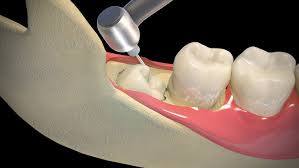How Often Should You Replace Your Dentures?

Dentures are a life-changing solution for many individuals who have lost teeth due to age, disease, or injury. These prosthetic devices restore not just oral function but also confidence and appearance. However, like any dental appliance, dentures are not designed to last forever. Understanding when to replace them is vital to maintaining both physical and emotional well-being—especially when considering the profound emotional impact of tooth loss.
The Average Lifespan of Dentures
On average, dentures should be replaced every 5 to 10 years. Several factors influence this timeframe, including:
- Material quality – Most dentures are made of acrylic, which wears down over time.
- Changes in oral anatomy – Your gums and jawbone can shift and shrink, altering the fit of your dentures.
- Daily wear and tear – Frequent use, chewing habits, and how well they’re cared for all affect longevity.
Although some individuals stretch their dentures beyond this range, doing so can lead to discomfort, functional issues, and even social anxiety due to improper fit.
Signs That It’s Time for a Replacement
It’s important to recognize the indicators that your dentures may need replacing. These include:
1. Poor Fit – If your dentures feel loose or move while speaking or eating, it could be a sign that your oral tissues have changed.
2. Discomfort or Sores – Dentures that no longer align properly can cause irritation or mouth sores.
3. Difficulty Chewing or Speaking – These everyday activities become challenging when dentures are worn out or misaligned.
4. Visible Wear or Damage – Cracks, chips, or stains that don’t go away are red flags.
5. Frequent Repairs – If you’re constantly trying to fix broken dentures, it may be more cost-effective to get a new set.
Failing to replace ill-fitting dentures can lead to more serious complications such as infections, further bone loss, and digestive problems from improper chewing.
Emotional Impact of Outdated Dentures
Beyond physical health, there’s also the often-overlooked emotional impact of tooth loss. Losing teeth can trigger feelings of embarrassment, sadness, or social isolation. Dentures help address these emotional effects by restoring not just your smile but your self-esteem.
However, when dentures begin to wear out or look unnatural due to aging, the psychological toll can return. Many people become self-conscious about smiling, laughing, or speaking in public. They may avoid social interactions altogether out of fear their dentures will slip or make noise.
Wearing an outdated set can reverse the confidence boost that dentures initially provided. This is why it’s crucial to monitor both the physical performance and emotional consequences of using the same dentures for years.
Maintaining Your Dentures for Longevity
While you’ll eventually need to replace your dentures, there are steps you can take to prolong their usefulness:
- Clean daily with a soft-bristle brush and non-abrasive cleanser.
- Soak overnight in a denture solution to maintain shape and hygiene.
- Handle with care to avoid cracks or chips.
- Schedule regular dental checkups to assess the fit and condition.
Your dentist may recommend relining or rebasing your dentures to adjust the fit before a full replacement becomes necessary. These are cost-effective ways to extend your dentures’ life while maintaining comfort and functionality.
Advances in Denture Technology
Modern dentures have come a long way. Today’s versions are more durable, realistic, and comfortable than ever before. Digital scanning and 3D printing have allowed for highly customized fits, while implant-supported dentures offer superior stability for those seeking a more permanent solution.
If you’re considering replacing your old dentures, now is an excellent time to explore these advancements. New technologies can not only improve your physical comfort but also ease the emotional impact of tooth loss by providing a more natural appearance and function.
When in Doubt, Talk to Your Dentist
There’s no one-size-fits-all answer for how often you should replace your dentures, but the general rule is every 5 to 10 years. Listen to your body and pay attention to signs of wear and discomfort. More importantly, recognize that outdated or poorly fitting dentures can have significant emotional consequences.
Your smile is a powerful part of your identity. Replacing your dentures at the right time ensures that you can eat, speak, and live confidently—while minimizing the lingering psychological effects of losing your natural teeth.
If you’re unsure whether it’s time to upgrade your dentures, consult with your dentist. They can assess your oral health and help you make the best choice for both your smile and your emotional well-being.



